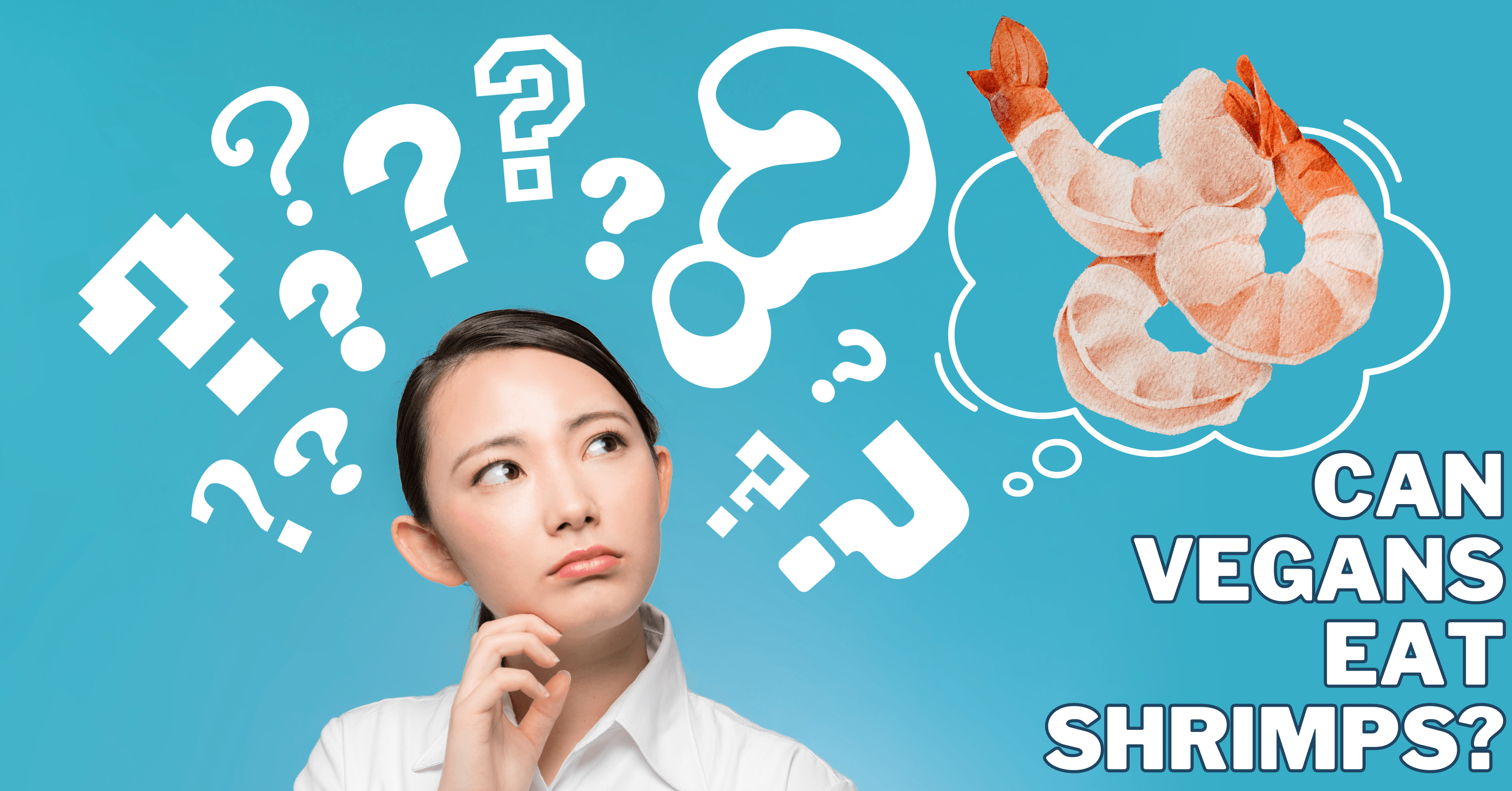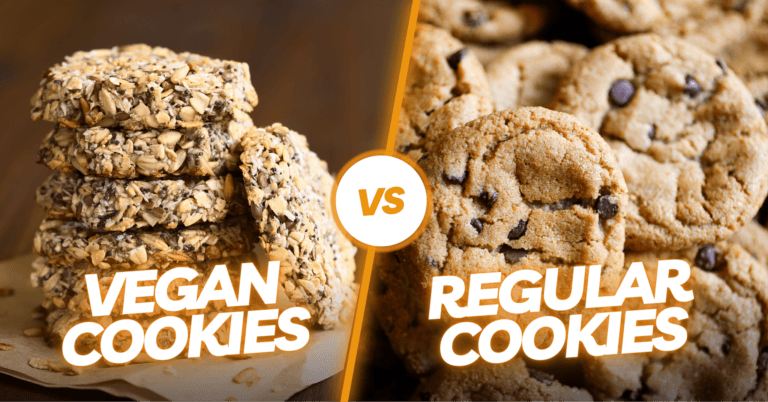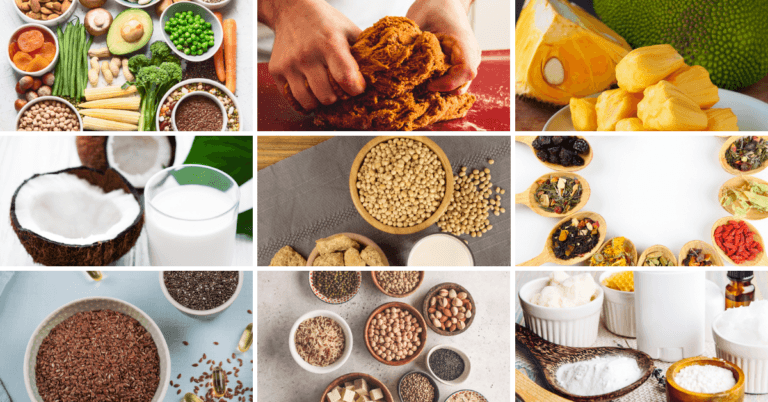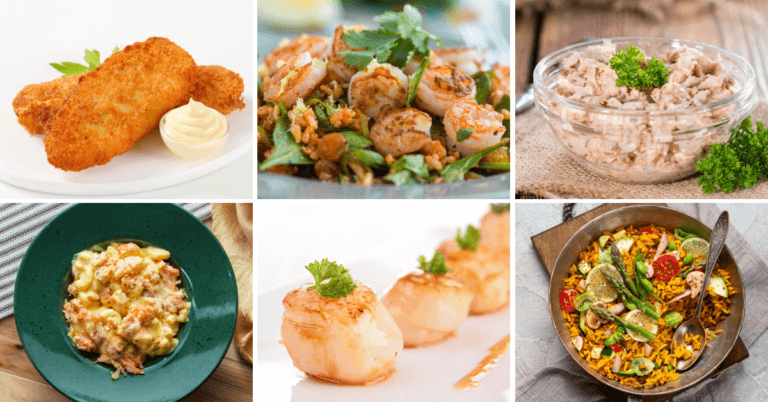Can Vegans Eat Shrimp
Can Vegans Eat Shrimp?
Whether vegans can eat shrimp may seem straightforward, but it delves into deeper discussions surrounding ethical and environmental considerations.
As more individuals embrace a vegan lifestyle, understanding what is considered acceptable on a plant-based diet becomes essential.
Shrimp, a popular seafood delicacy, raises important questions about the impact of human choices on marine ecosystems and animal welfare.
This article aims to shed light on the complexities of shrimp consumption within the context of veganism, examining why some vegans abstain from eating seafood and the alternatives they choose to follow their compassionate and sustainable principles.
By exploring the ethical and environmental implications of consuming shrimp, we can gain insight into vegans' broader choices to align their diets with their values.
Reasons Why Vegans Can’t Eat Shrimp
Vegans abstain from eating shrimp and other seafood for several reasons. Firstly, at the core of veganism is the belief in reducing harm to animals, and the shrimp fishing industry raises serious ethical concerns.
Shrimp are often caught using trawling methods, where large nets are dragged across the ocean floor, resulting in “bycatch” — the unintended capture of non-target species, including endangered marine life like sea turtles and dolphins.
This indiscriminate fishing practice leads to substantial collateral damage to marine ecosystems and disrupts the delicate balance of marine life.
Moreover, shrimp farming, a common method of shrimp production, often involves overcrowded and unsanitary conditions for the shrimp, contributing to the spread of diseases and the use of antibiotics to manage infections.
The environmental impact of shrimp farming is also significant, with vast coastal areas converted into shrimp ponds, leading to habitat destruction and biodiversity loss.
Another factor is the unsustainable depletion of global seafood stocks due to overfishing, which threatens the delicate ecological balance of marine ecosystems.
Many marine species, including shrimp, risk being overexploited, leading to population declines and ecological disruption.
By avoiding shrimp consumption, vegans aim to support more sustainable and compassionate choices that align with their values of ethical treatment of animals and environmental preservation.
Instead, they opt for plant-based alternatives that provide similar flavours and textures while minimizing the negative impact on marine life and our planet.
Shrimp Alternative For Vegans
Vegans have a variety of shrimp alternatives available that provide similar flavours and textures without the ethical and environmental concerns associated with traditional shrimp consumption.
Here are some popular shrimp alternatives for vegans:
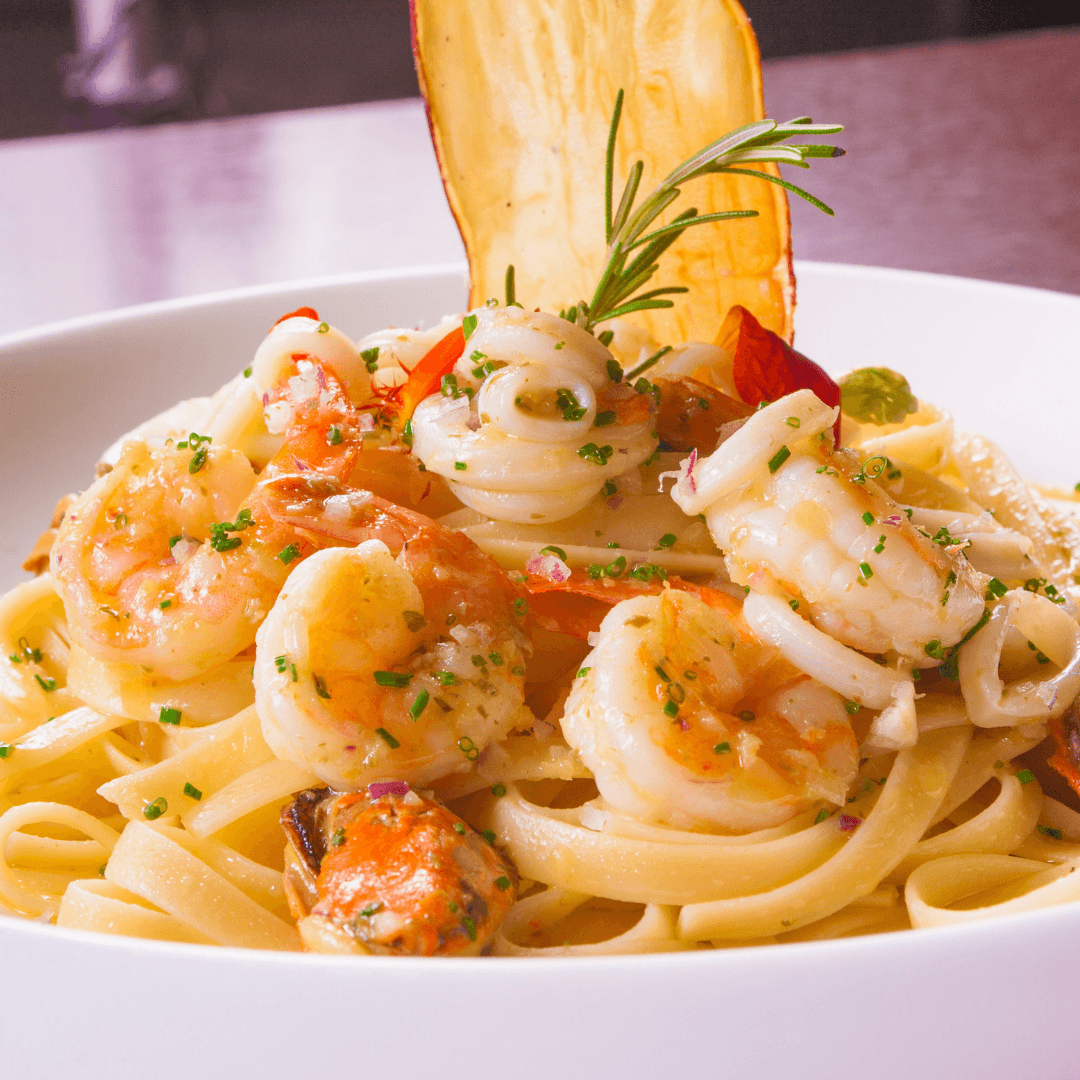
1. Plant-Based Shrimp
Plant-based shrimp is an exciting and innovative alternative for vegans seeking to enjoy the flavours and textures of traditional shrimp dishes without compromising their ethical values.
Many brands now offer plant-based shrimp made from various ingredients, such as konjac, soy protein, or wheat gluten, which closely mimic the appearance and texture of real shrimp.
These alternatives are crafted with attention to detail, creating a seafood-like experience that can be used in various recipes.
Whether you're craving a zesty shrimp stir-fry, a savoury shrimp scampi, or a refreshing shrimp cocktail, these plant-based options provide a versatile canvas for culinary creativity.
The shrimp alternatives absorb the flavours of seasonings, marinades, and sauces, making them ideal for dishes that require robust tastes.
Moreover, plant-based shrimp alternatives are cholesterol-free and generally lower in fat than animal-based counterparts, contributing to a healthier and more sustainable diet.
By incorporating plant-based shrimp into their meals, vegans can savour the tastes they love while upholding their commitment to compassion and environmental responsibility.
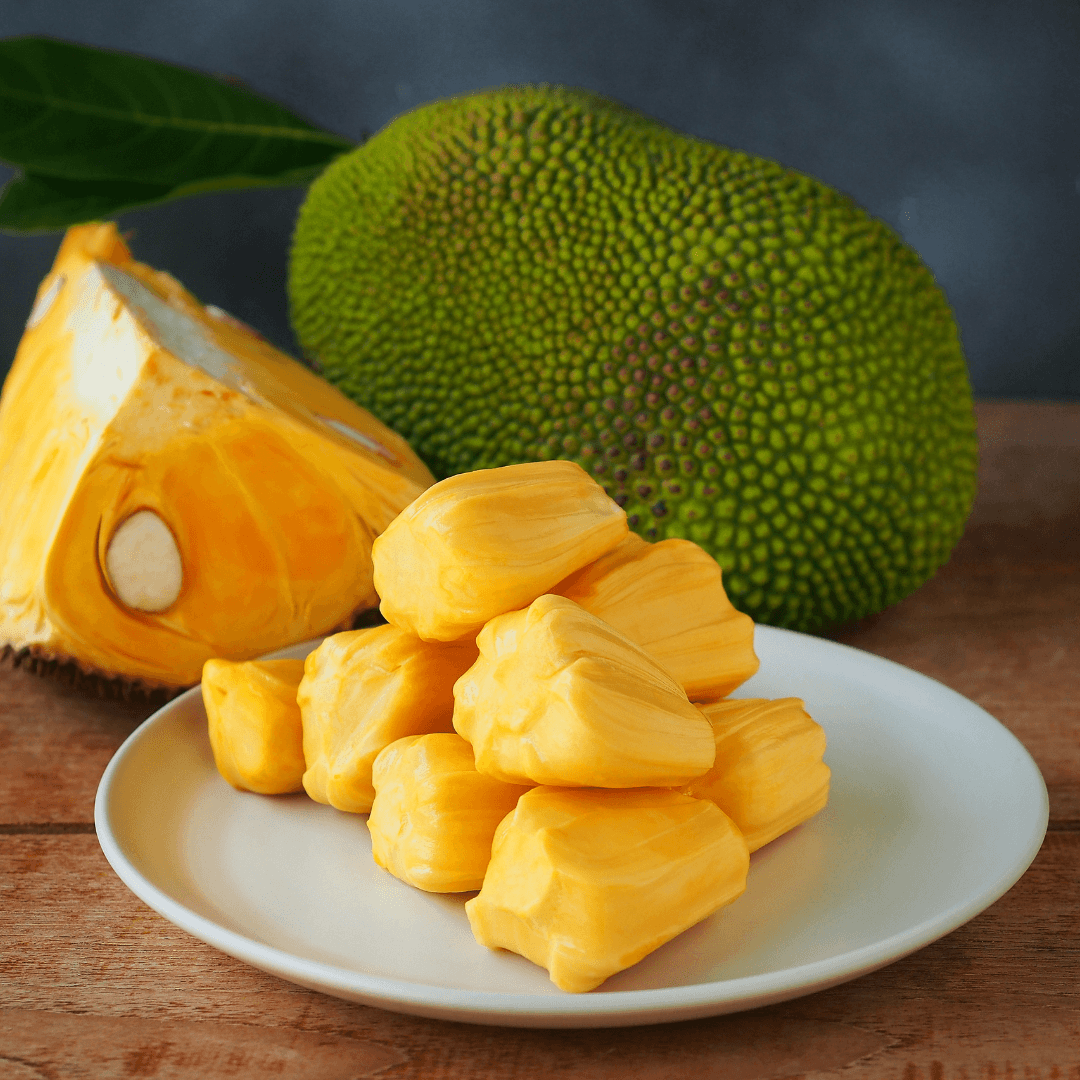
2. Jackfruit
Jackfruit has gained popularity among vegans as a versatile and delectable substitute for shrimp in various dishes.
When young green jackfruit is cooked and seasoned, its unique fibrous texture closely resembles the flakiness of shrimp, making it an excellent choice for recreating shrimp-inspired recipes.
Its ability to absorb flavours and take on the essence of seasonings allows it to seamlessly integrate into dishes like shrimp tacos, stir-fries, and curries.
The neutral taste of jackfruit also makes it an ideal canvas for bold and savoury marinades, further enhancing its resemblance to real shrimp.
Moreover, using jackfruit as a shrimp alternative contributes to a sustainable and ethical diet since it is a fruit that can be harvested without harming the tree.
Its abundance and accessibility in many regions make it a practical and eco-friendly choice for plant-based cooking.
For those seeking to explore new culinary horizons while remaining true to their vegan values, incorporating jackfruit as a shrimp substitute opens the door to a world of delicious and compassionate seafood-inspired delights.
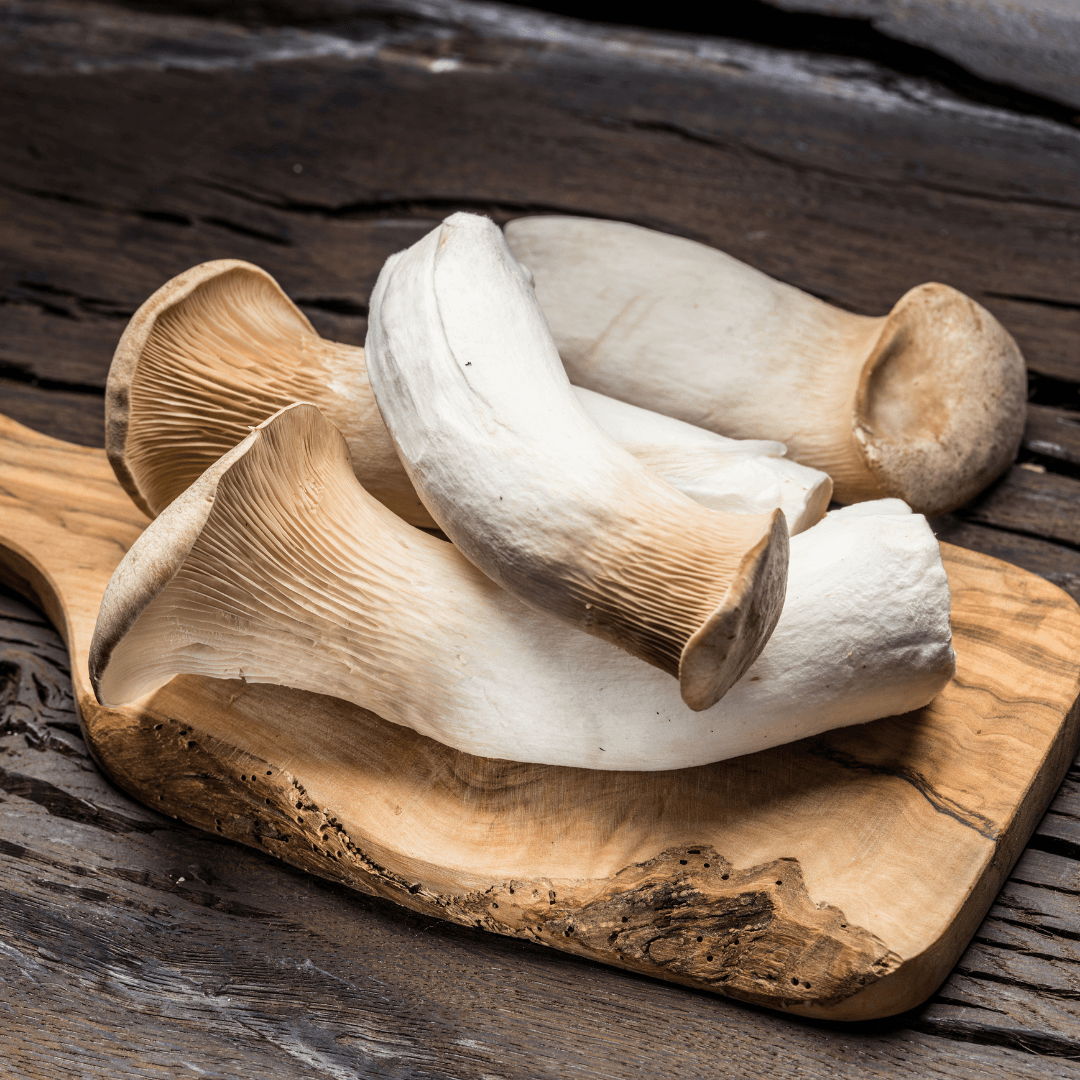
3. King Oyster Mushrooms
King oyster mushrooms have become a favorite among vegans for their uncanny ability to imitate shrimp's tender and chewy texture when sliced and cooked.
Their elongated shape and meaty texture make them an excellent substitute for shrimp in various dishes.
In vegan shrimp scampi or coconut shrimp, king oyster mushrooms shine, providing a satisfying and seafood-like experience.
When sautéed or pan-fried, these mushrooms take on a succulent quality that closely resembles the juiciness of shrimp.
Moreover, their mild taste allows them to absorb the flavours of seasonings and sauces, adding to the authenticity of shrimp-inspired recipes.
King oyster mushrooms are also nutritionally rich, boasting essential vitamins, minerals, and fiber.
As a sustainable alternative to shrimp, they provide a compassionate choice for those seeking to avoid animal products and contribute to a more environmentally friendly food system.
Whether you're a seasoned vegan or an adventurous food enthusiast looking to try something new, incorporating king oyster mushrooms into your recipes will elevate your plant-based culinary creations.
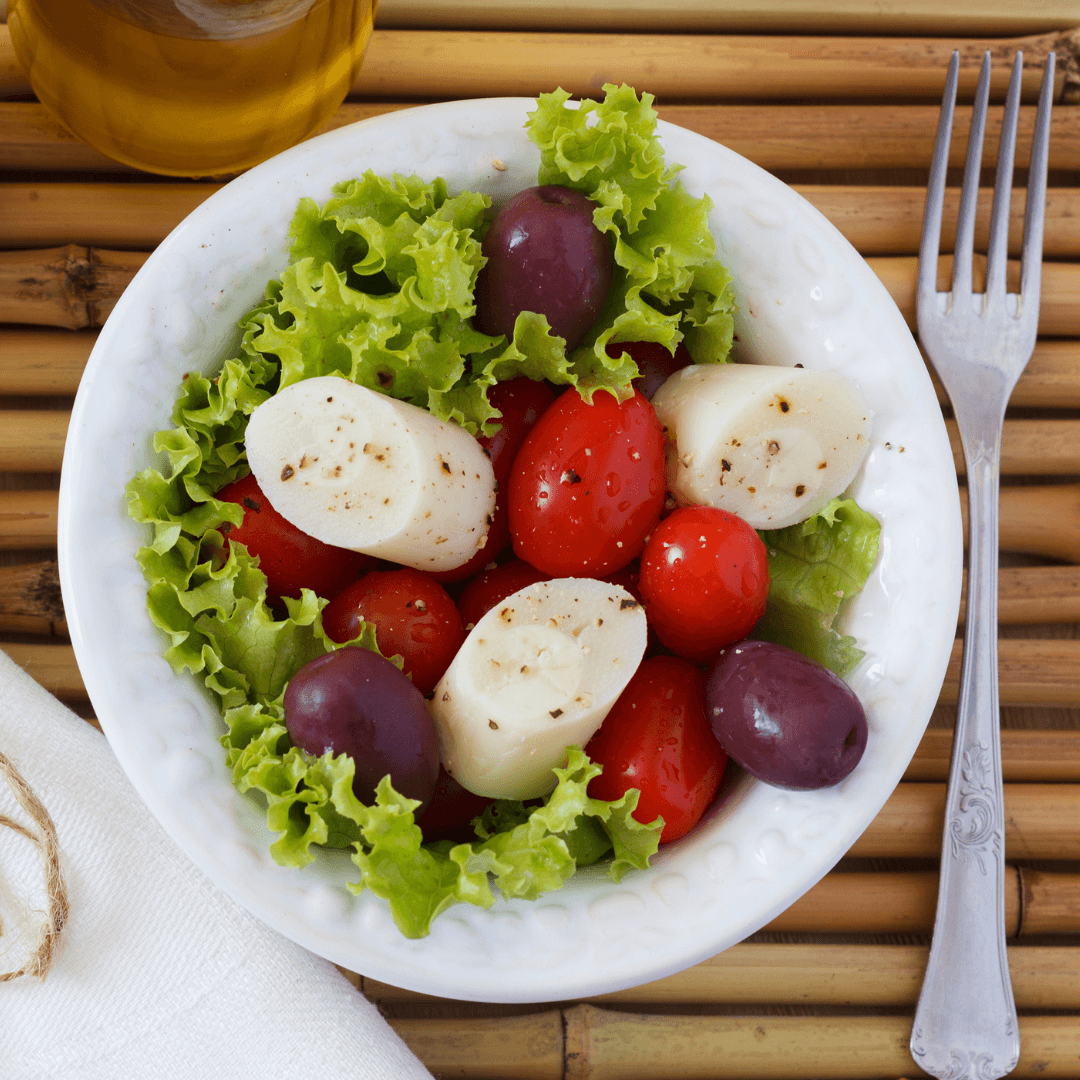
4. Hearts Of Palm
Hearts of palm are another remarkable ingredient that can be transformed into a shrimp-like texture when sliced and seasoned.
These tender, ivory-coloured cores of certain palm trees offer a unique and delicate flavour, making them a versatile addition to various dishes.
When prepared properly, hearts of palm can closely resemble the texture of shrimp, making them an excellent alternative for vegans seeking to recreate classic seafood-inspired recipes.
For vegan shrimp cocktails, hearts of palm can be sliced into bite-sized pieces and then marinated in a tangy, zesty sauce, delivering a refreshing and delicious appetizer.
In pasta dishes like vegan shrimp scampi or creamy Alfredo, hearts of palm can be sliced or shredded to mimic the appearance and feel of shrimp, enhancing the overall dish's taste and presentation.
The mild taste of the hearts of palm allows them to absorb the flavours of seasonings and sauces, making them a suitable candidate for various culinary applications.
Moreover, the hearts of palm are low in calories and contain essential nutrients such as potassium, calcium, and vitamin C, offering health benefits alongside their culinary versatility.
As a sustainable and compassionate alternative to shrimp, hearts of Palm provides a creative way to savour the flavours and textures of traditional seafood dishes in a plant-based manner.
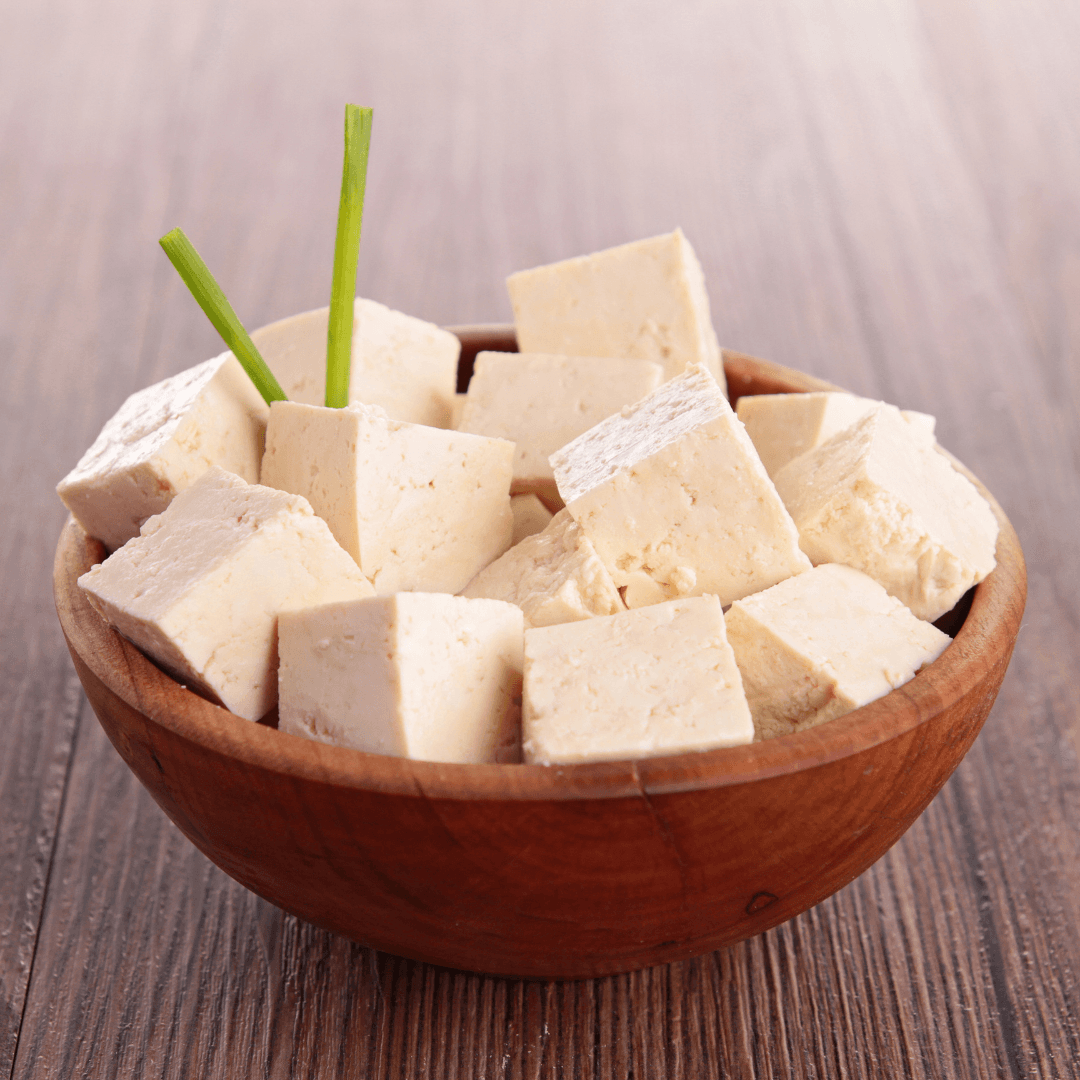
5. Tofu
With its remarkable versatility and ability to absorb flavours, tofu can be an excellent substitute for shrimp in vegan cooking.
Extra-firm tofu can be cubed and seasoned to resemble the shrimp's appearance and texture closely.
Marinating the tofu in a blend of spices, soy sauce, and other seasonings can absorb the flavours and take on a savoury taste reminiscent of seafood.
In vegan shrimp stir-fries, tofu cubes can be sautéed until they develop a slightly crispy exterior while remaining tender and succulent, just like shrimp.
Tofu can also be used in creamy curries, readily absorbing aromatic spices and coconut milk, delivering a delightful seafood-like experience.
Besides its ability to imitate shrimp's texture, tofu offers substantial health benefits as a rich source of plant-based protein and essential nutrients like calcium, iron, and magnesium.
Moreover, tofu is a low-calorie option, making it suitable for those seeking to manage their calorie intake.
As a sustainable and cruelty-free alternative, tofu opens up a world of creative possibilities for vegan shrimp dishes, allowing individuals to enjoy the flavours and textures of traditional seafood meals without compromising their ethical values.
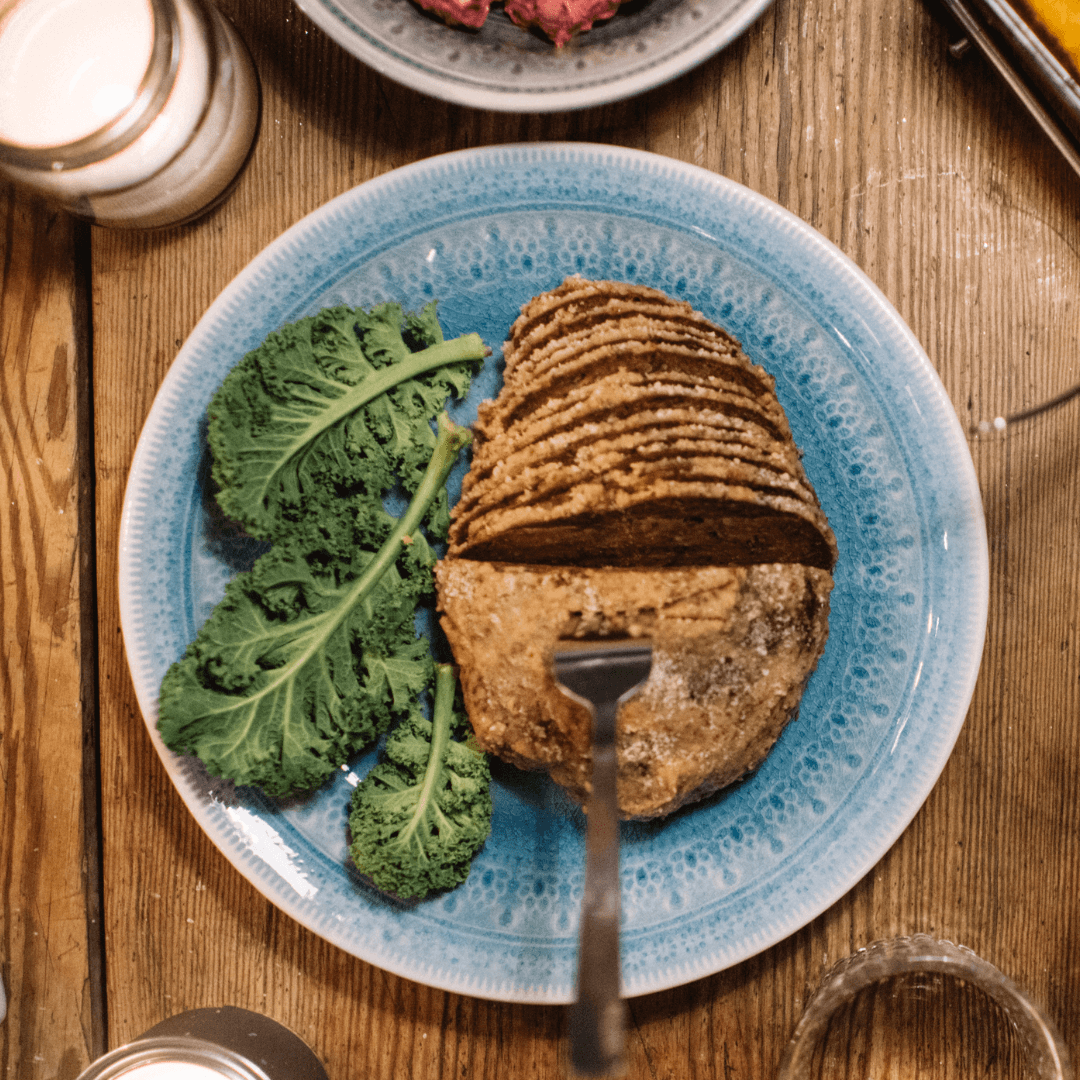
6. Seitan
Seitan, a protein-rich meat substitute derived from wheat gluten, offers a compelling option for replicating the texture of shrimp in vegan cooking.
With its chewy and dense composition, seitan can be easily moulded and shaped to resemble the appearance of shrimp.
Marinating seitan in a blend of seaweed-based seasonings, soy sauce, and other flavour-enhancing ingredients can absorb seafood's briny and umami-rich taste.
In dishes like vegan shrimp kebabs, the seitan can be threaded onto skewers alongside colourful vegetables and grilled to achieve a charred and succulent exterior, mirroring the appearance of shrimp skewers.
Another creative application is vegan sushi rolls, where seitan can be thinly sliced into sushi with rice, avocado, and other fillings, creating the illusion of shrimp nigiri or sushi rolls.
Seitan's adaptability and ability to retain moisture during cooking make it a favoured choice for recreating shrimp's tender and springy texture.
Furthermore, seitan is a substantial source of protein, making it an excellent option for vegans seeking to meet their dietary protein requirements.
As a cruelty-free and sustainable alternative to seafood, seitan empowers individuals to enjoy classic seafood-inspired dishes guilt-free while embracing a plant-based lifestyle.
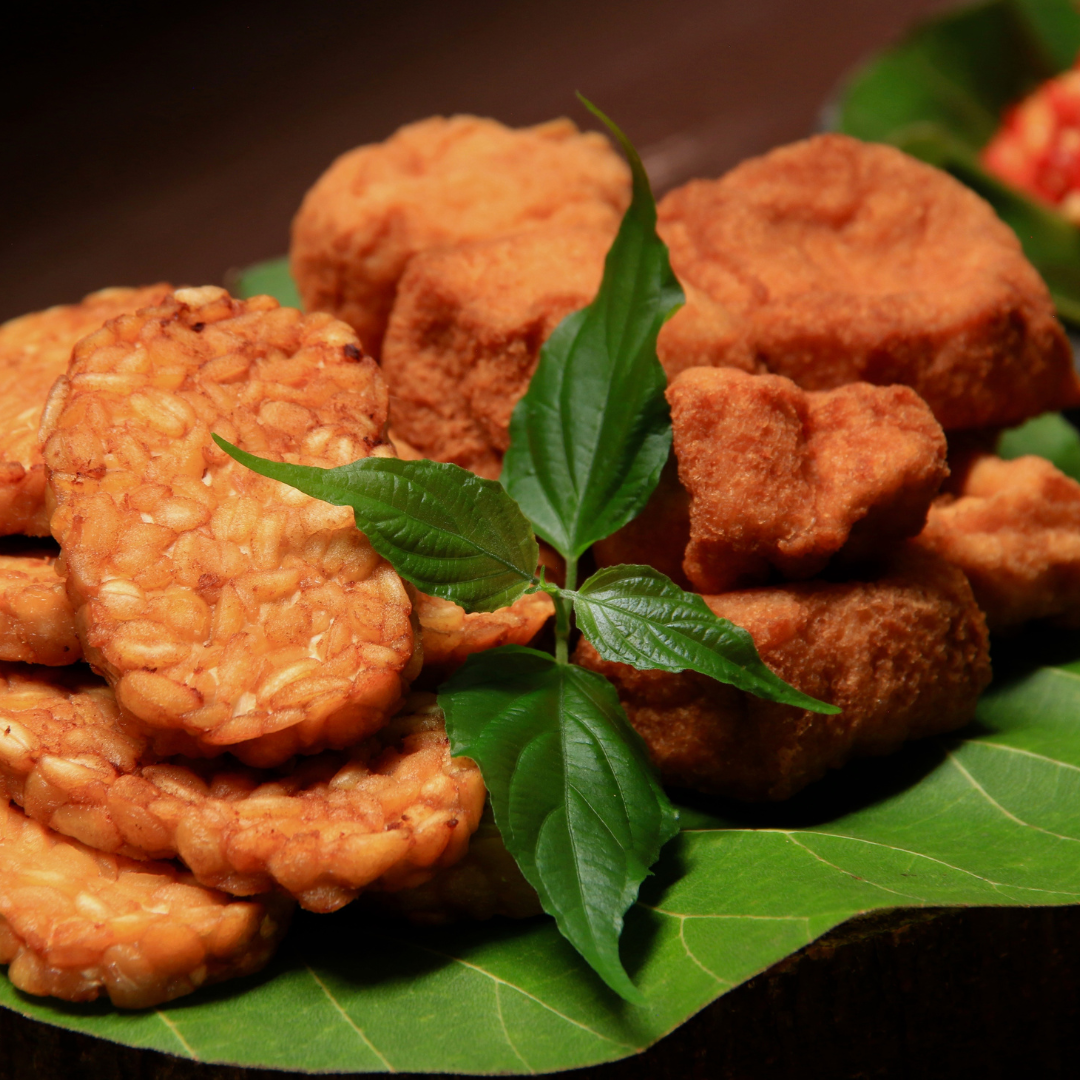
7. Tempeh
Tempeh, a fermented soybean product, is a versatile and hearty ingredient that can be transformed into a convincing shrimp substitute in vegan cooking.
Tempeh develops a firm and slightly chewy texture, reminiscent of shrimp, through marinating and cooking.
To achieve a seafood-inspired taste, tempeh can be marinated in a blend of seaweed-based seasonings, garlic, paprika, and other Cajun spices commonly used in traditional shrimp gumbo or jambalaya recipes.
This allows the tempeh to absorb the rich and bold flavours, enhancing its appeal as a shrimp alternative.
In dishes like vegan shrimp gumbo, tempeh can be added alongside the classic combination of vegetables, tomatoes, and aromatic herbs to create a hearty and satisfying meal.
Similarly, in vegan jambalaya, tempeh can take on the role of shrimp, offering a protein-packed ingredient that complements the rice, vegetables, and spices in this beloved Creole dish.
Tempeh's unique, nutty, earthy taste adds depth to seafood-inspired dishes while providing an excellent source of protein and nutrients for a balanced vegan diet.
As a sustainable and cruelty-free option, tempeh empowers individuals to enjoy the flavours of traditional seafood dishes while embracing a plant-based lifestyle.
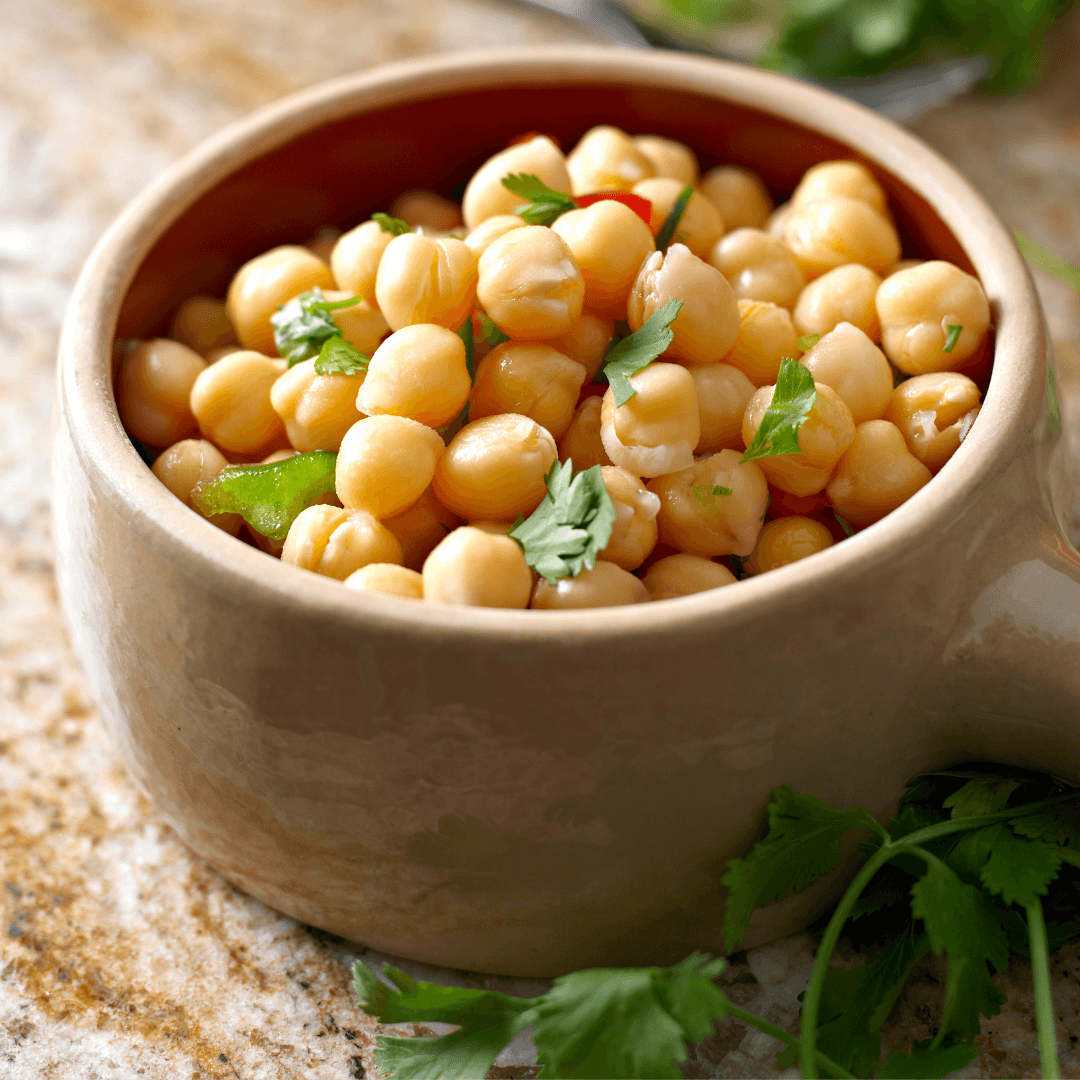
8. Chickpeas
Chickpeas, or garbanzo beans, are versatile legumes that can be mashed and seasoned to create a satisfying vegan shrimp alternative.
Chickpeas take on a flaky and chunky texture reminiscent of shredded shrimp when mashed. Cooked chickpeas can be gently mashed with a fork or a potato masher to craft a delicious vegan shrimp salad or sandwich filling until they reach the desired consistency.
The mashed chickpeas can be mixed with plant-based mayonnaise, lemon juice, dill, Old Bay seasoning, and sea salt to enhance the seafood-like taste.
This flavourful combination adds a zesty element to the chickpeas, creating a taste similar to traditional shrimp salad.
The seasoned chickpea mixture can then be used as a filling for sandwiches and wraps or served over a bed of fresh greens for a light and protein-rich salad.
Chickpeas' heartiness and protein content make them an ideal base for vegan shrimp alternatives. They provide a nutrient-dense and satiating option for those looking to recreate classic seafood dishes without animal products.
Chickpeas also offer a good source of dietary fiber, iron, and other essential nutrients, making them a wholesome addition to a balanced vegan diet.
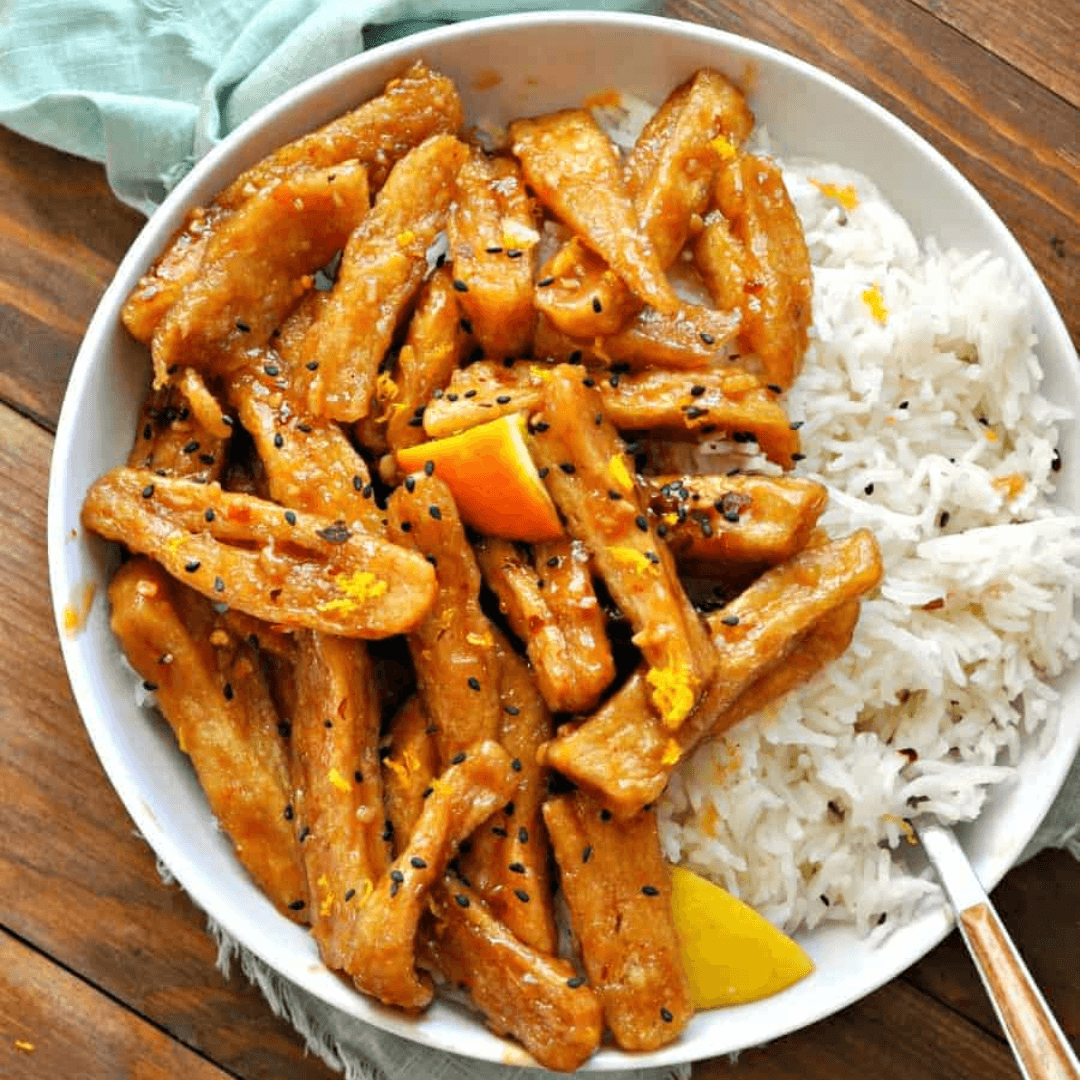
9. Soy Curls
Soy curls are a versatile, protein-rich vegan shrimp alternative from whole soybeans. These soy-based products have a chewy and slightly fibrous texture, resembling the bite of shrimp.
Soy curls can be rehydrated as a vegan shrimp substitute by soaking them in hot water or vegetable broth until they become soft and pliable.
Once rehydrated, they can be seasoned with various herbs, spices, and sauces to achieve the desired flavour.
For example, soy curls can be marinated in soy sauce, garlic, ginger, and a touch of agave syrup to create a savoury and umami-rich taste akin to shrimp stir-fries.
Alternatively, they can be tossed in a creamy and tangy lemon-dill sauce to mimic the flavours found in shrimp pasta dishes.
The versatility of soy curls allows them to absorb flavours well, making them an excellent canvas for a wide range of vegan shrimp-inspired recipes.
As a whole food, soy curls provide a wholesome source of plant-based protein, fiber, and essential nutrients, contributing to a balanced and nutritious vegan diet.
Whether used in Asian-inspired stir-fries or Mediterranean-style pasta dishes, soy curls offer a delightful and satisfying shrimp-like texture, making them a popular choice for vegans seeking to recreate classic seafood flavours in their meals.
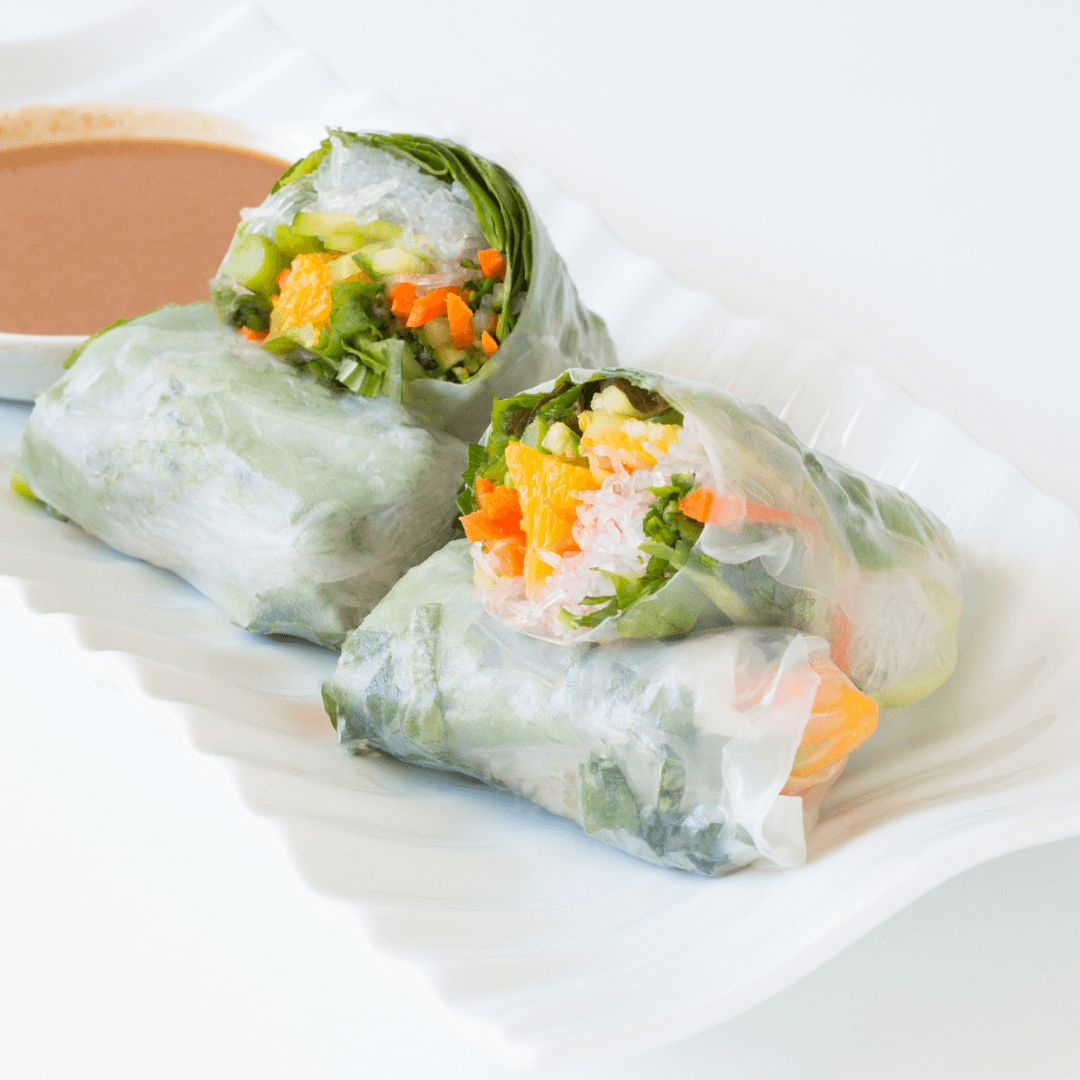
10. Rice Paper Wrappers
Rice paper wrappers are excellent for crafting vegan shrimp spring rolls, delivering a delectable and refreshing appetizer or snack option.
To create these delightful treats, rice paper wrappers are soaked in warm water until they become soft and pliable.
Once softened, they can be filled with various ingredients, including vegan shrimp alternatives, fresh vegetables, herbs, and rice noodles.
The vegan shrimp, whether made from soy protein, konjac, or other plant-based sources, provides a savoury and slightly chewy element to the rolls, reminiscent of traditional shrimp spring rolls.
Adding crisp and colourful vegetables, such as shredded carrots, cucumber, lettuce, and mint leaves, adds a delightful crunch and freshness to each bite.
A tangy and flavorful dipping sauce, such as a hoisin-peanut sauce or a sweet chilli sauce, is typically served alongside the rolls to enhance the flavours.
These vegan shrimp spring rolls are a visually appealing dish with a delightful explosion of textures and tastes catering to various dietary preferences.
Moreover, they are a fantastic option for warm days with a desired light and cooling appetizer.
Whether served as a party platter, an appetizer at a gathering or as a light meal, rice paper-wrapped vegan shrimp spring rolls are sure to impress with their delicious flavours and impressive presentation.
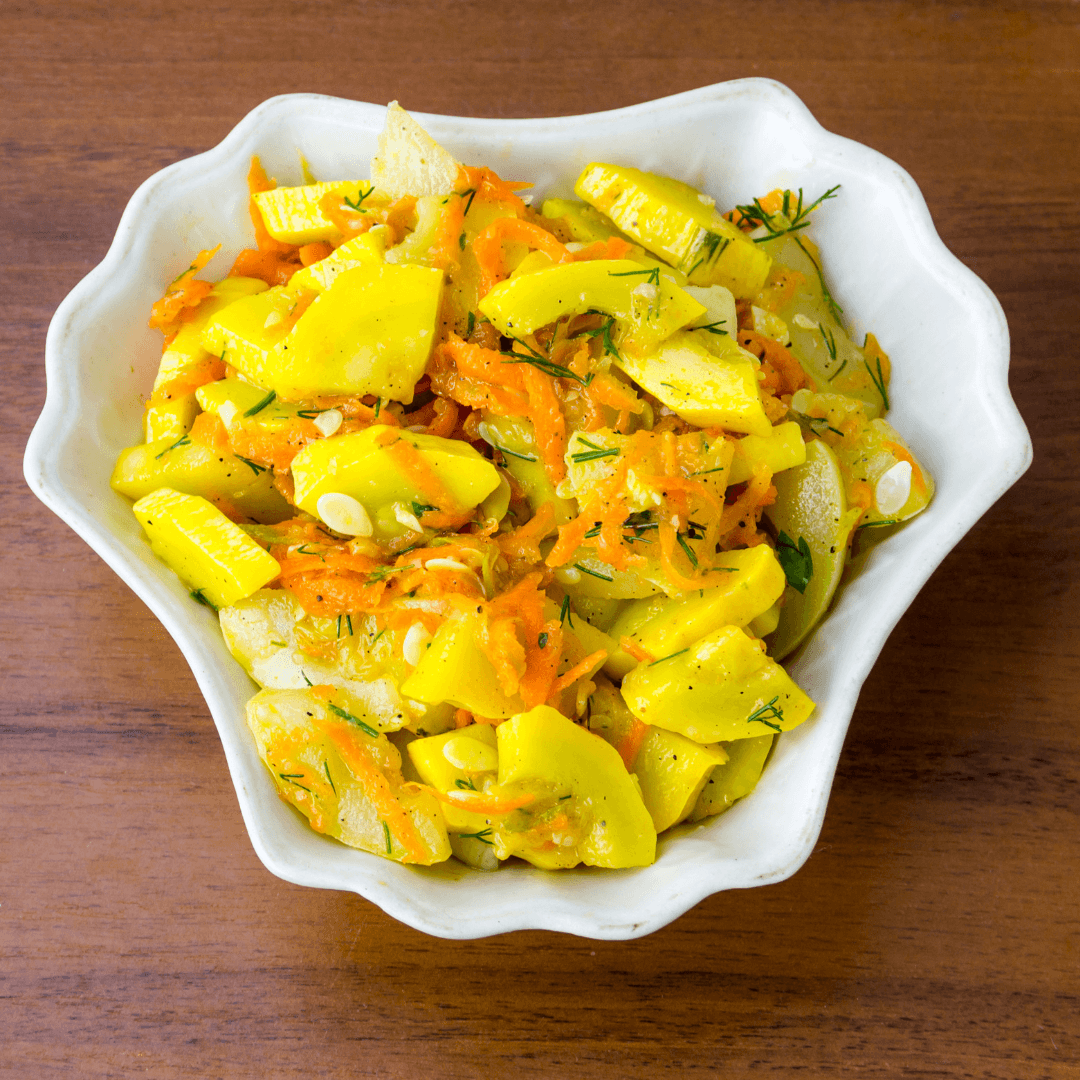
11. Marinated Zucchini
Marinated zucchini offers a delightful and refreshing alternative to shrimp in various vegan dishes, such as vegan shrimp ceviche or kabobs.
To create the zucchini substitute, the zucchini is thinly sliced to resemble the shape and size of the shrimp.
The slices are then marinated in a flavorful mixture, typically including lime or lemon juice, vinegar, olive oil, garlic, and a blend of herbs and spices.
This marinade infuses the zucchini slices with tangy and savoury flavours, similar to the essence of seafood in traditional shrimp dishes.
The marinated zucchini takes on a tender yet crisp texture, further replicating the characteristic bite of shrimp.
In vegan shrimp ceviche, the marinated zucchini is combined with diced tomatoes, onions, cilantro, and avocado, creating a refreshing and zesty medley that can be enjoyed as a standalone appetizer or served with tortilla chips.
Additionally, for vegan shrimp kabobs, the marinated zucchini slices are threaded onto skewers with other vegetables like bell peppers, onions, and cherry tomatoes, offering a vibrant and flavorful presentation.
Whether enjoyed as part of a light and tangy ceviche or as a delightful addition to kabobs, marinated zucchini provides a delectable and versatile option for those seeking a plant-based substitute for shrimp while still relishing in the vibrant flavours of various dishes.
Conclusion
In conclusion, vegans cannot eat shrimp or any other seafood as it comes from animals and is not considered plant-based.
Shrimp and other seafood are obtained by fishing, which involves capturing and killing marine animals, leading to harm and exploitation of aquatic life.
Vegans avoid all animal products, including seafood, to align with their ethical beliefs of not causing harm to animals and promoting a more sustainable and compassionate lifestyle.
Ultimately, being vegan goes beyond just food choices; it encompasses a broader commitment to kindness, empathy, and sustainability.
By choosing plant-based alternatives and adopting a cruelty-free lifestyle, vegans are essential in promoting positive change and impacting the planet and all its inhabitants.
I trust you enjoyed reading the article about Can Vegans Eat Shrimp? Please stay tuned. There are more blog posts to come very shortly.
JeannetteZ
>>>Please click here to read my Vegan Travel Guides To World Destinations<<<
>>>Want To Learn How To Create Delicious, Cruelty-Free, Healthy AND 100% Vegan Meals? Try These Awesome Vegan Cooking Courses With A Free 7-DAY MEMBERSHIP<<<
Your Opinion Is Important To Me
Ideas? Thoughts? Questions? I would love to hear from you. Would you please leave me your questions, experience, and remarks about Can Vegans Eat Shrimp in the comments section below? You can also reach me by email at Jeannette@LivingTheVeganLifestyle.org.
>>>Please click here to read what Wikipedia says about vegan nutrition<<<
Disclosure
This post may contain affiliate links. I earn from qualifying purchases as an Amazon Associate and other affiliate programs. Please read my full disclosure.
Here are some links to some of my favourite articles:
Top Reasons People Avoid A Vegan Diet
A Definite Guide To Vegan Chocolate

